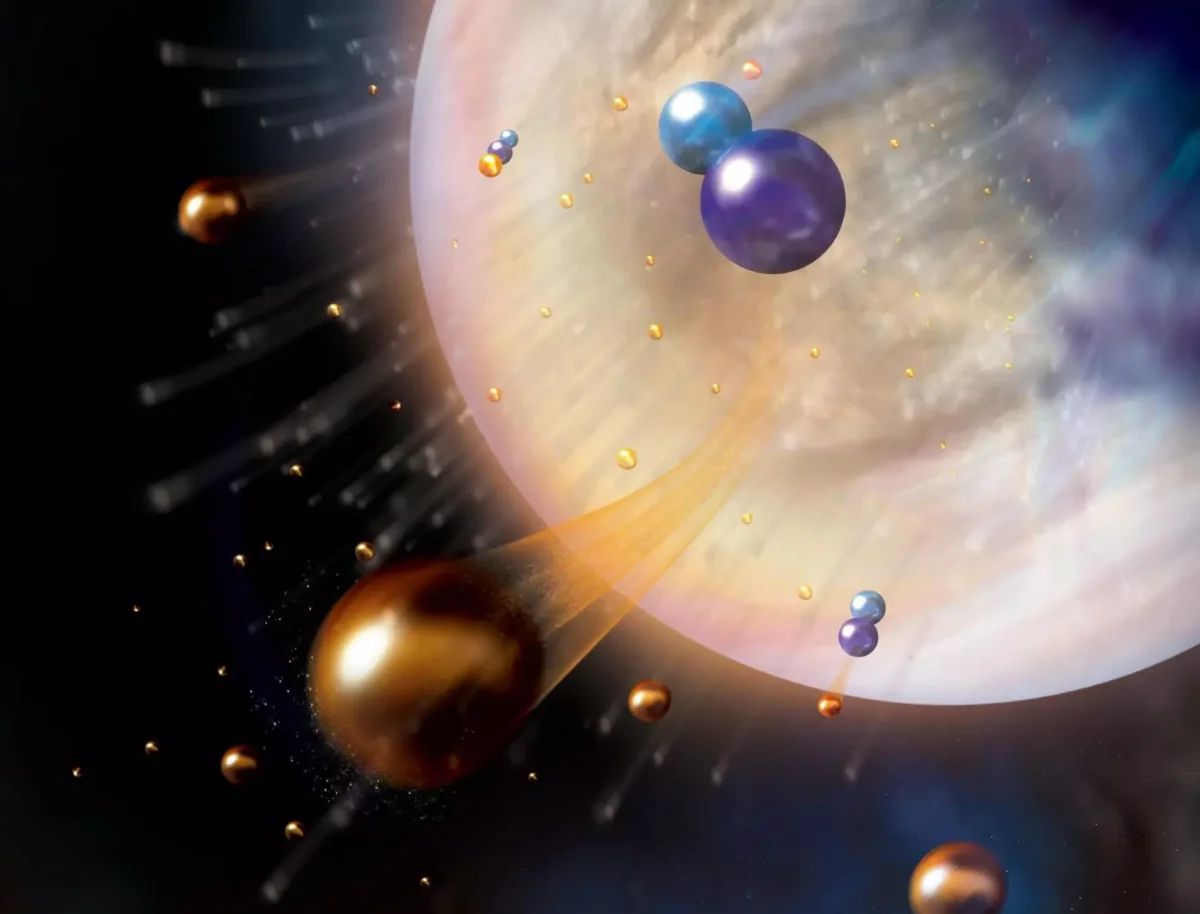An American research group has reportedly solved a major mystery in planetary science, and can explain how Venus lost almost all of its water. The HCO molecule is responsible+Which should be abundant in the upper atmosphere of the second planet in the solar system, Explains the University of Colorado at Boulder. So far, no probe working there has had instruments on board to detect this molecule. The planned da Vinci probe won't be able to find it either, the research team wrote. But she hopes to launch a mission in the future that can search for exactly this substance and thus confirm that it plays a crucial role in the planet's loss of water.
advertisement
There is only a little water left
In fact, Venus is supposed to have received an amount of water equivalent to what our Earth received during its formation several billion years ago, the team wrote. While all the water on our home planet could cover it evenly at a height of 3 km, on Venus its height would be only 3 cm. This huge difference has its origins in strong global warming caused by clouds of carbon dioxide at some point in Venus's history. It caused temperatures there to rise to nearly 500 degrees Celsius at the surface and allowed the water there to evaporate. Then most of it disappeared from the atmosphere into space. However, there should have been many more than we find there now.
Using computer models, the research group found that sunlight in Venus' atmosphere largely breaks down not only water vapor molecules – as previously thought – but also carbon dioxide. The hydrogen atoms that do not escape directly into space will then combine with carbon monoxide to form HCO+ The reaction, which in turn disintegrates directly to get rid of excess energy. Most of it will go to the hydrogen atom, which is now escaping into space at high speed, Quoted from the American magazine Science Co-author Michael Chaffin. This would explain why more water is lost and continues to be lost than expected. If the hypothesis is correct, then HCO should+ It is the most common ion in the atmosphere of Venus.
now A study published in the journal Nature It confirms once again how much we don't know about Venus. This is also because Earth's neighboring planet has been virtually ignored in favor of Mars in recent decades. There is currently only one probe orbiting Venus, Japan's Akatsuki probe, while there are seven on Mars – plus two active rovers. Meanwhile, several Venus missions are once again being prepared. One of the most ambitious such projects is NASA's Da Vinci Probe (Investigation of the Deep Atmosphere of Venus for Noble Gases, Chemistry and Imaging). But that should not start before the end of the decade. The discrepancy became clear recently with the alleged discovery of phosphine on Venus, which could not be verified in situ.
(meh)

“Total coffee aficionado. Travel buff. Music ninja. Bacon nerd. Beeraholic.”








More Stories
Coral Seeding: Artificial Insemination Makes Coral More Heat Tolerant
Fear, Anger, and Denial: How People Respond to Climate Change – Research
LKH Graz: Using radiation to combat heart arrhythmias